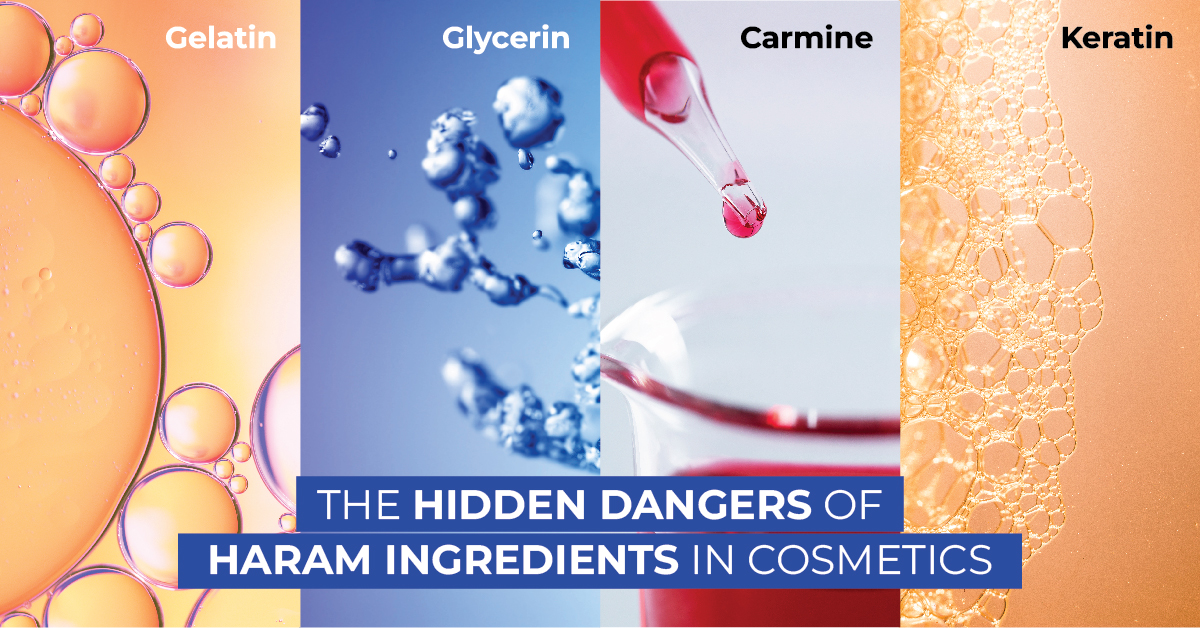Introduction
The skincare world is full of powerful ingredients—vitamin C, hyaluronic acid, retinol, peptides, and sunscreen actives. But for Muslim consumers, there’s an extra layer of consideration: are these ingredients halal? Understanding the source and processing of cosmetic actives helps ensure skincare choices align with both personal values and skin health.
What Makes an Ingredient Halal?
Halal cosmetic ingredients must meet three main criteria:
-
Source – Ingredients cannot come from pigs, non-halal-slaughtered animals, or intoxicating alcohols.
-
Processing – No cross-contamination with non-halal materials during manufacturing.
-
Safety & Cleanliness – Products must be free from harmful contamination and produced under hygienic conditions.
This framework ensures not only religious compliance but also a high standard of ingredient integrity and safety.
Common Skincare Actives & Their Halal Status
Vitamin C
-
What it does – Brightens skin, boosts collagen, reduces dark spots.
-
Halal status – Vitamin C (ascorbic acid) is synthetic or plant-derived, making it halal-friendly.
Hyaluronic Acid
-
What it does – Hydrates and plumps skin by drawing in water.
-
Halal status – Originally extracted from rooster combs, but most modern hyaluronic acid is made via fermentation (bacterial or plant-based), making it halal when sourced this way.
Niacinamide
-
What it does – Improves skin tone, reduces acne, strengthens the barrier.
-
Halal status – A lab-synthesized form of vitamin B3, halal-friendly.
Retinol & Retinoids
-
What they do – Promote cell turnover, reduce fine lines, improve pigmentation.
-
Halal status – Retinol is typically lab-made, but always check for encapsulation materials (some may contain animal-derived gelatin).
Peptides
-
What they do – Support collagen, elasticity, and skin repair.
-
Halal status – Most skincare peptides are synthetic and halal; however, animal-derived collagen peptides are not.
Sunscreen Actives
-
Mineral filters – Zinc oxide and titanium dioxide are mineral-based and halal-friendly.
-
Chemical filters – Ingredients like avobenzone, octocrylene, and homosalate are lab-synthesized and halal; however, always ensure the formulation avoids alcohol-based carriers.
Ingredients to Double-Check
Some ingredients may be halal in theory but need closer scrutiny:
-
Glycerin – Plant or synthetic sources are halal; animal-derived glycerin may not be.
-
Collagen & Elastin – Often animal-derived; look for plant-based or lab-created versions.
-
Alcohols – Fatty alcohols (cetyl, stearyl) are halal. Intoxicating ethanol is not halal unless specially denatured for cosmetic use under certain standards.
-
Colorants (like Carmine) – Derived from insects and not halal; choose plant-based or synthetic alternatives.
Why Halal Goes Beyond “Clean” or “Vegan”
-
Vegan excludes animal ingredients but doesn’t regulate alcohol or cross-contamination.
-
Clean beauty avoids certain chemicals but has no standard definition.
-
Halal certification ensures a comprehensive system: source integrity, processing hygiene, and ingredient transparency.
For Muslim consumers, this makes halal skincare the most reliable choice. For non-Muslim consumers, halal standards still provide a guarantee of clean, ethical, and carefully verified formulations.
Key Takeaway
Halal skincare doesn’t mean limiting effectiveness. Ingredients like vitamin C, hyaluronic acid, niacinamide, and sunscreen actives are halal-friendly when sourced and processed correctly. By choosing halal-certified cosmetics, consumers gain both peace of mind and high-quality skin benefits.



